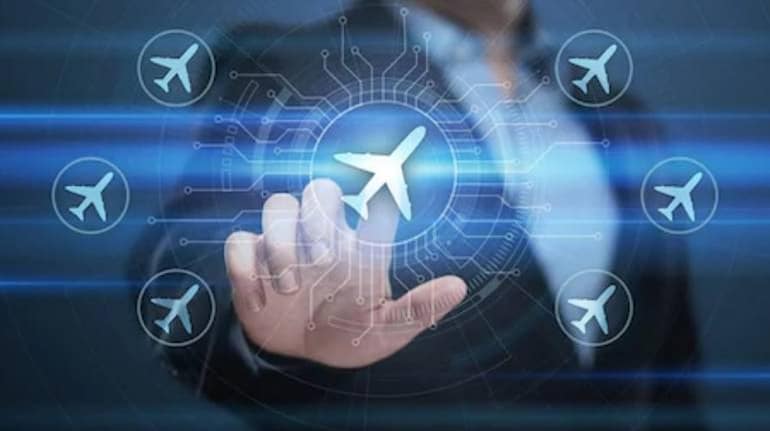



From writing emails to generating period portraits, Artificial Intelligence (AI) has taken over the world in the last few years. So why not travel, too? Turns out, subtly but surely, it has already begun. Anyone who has ever looked up a destination on a device only to be flooded by all kinds of recommendations can attest to this. With its ability to crunch massive amounts of data and learn from individual preferences, AI has already begun to revolutionise how we plan, navigate, and enjoy our journeys.
Clearly, it is expanding at a furious pace: from about $632 million in 2021 generative AI in travel industry is expected to reach close to $900 million globally in 2024. It’s easy to see why. AI paves the way for a world of increasingly more personalised seamless experiences, from planning itineraries to streamlining customer service. Embracing AI in travel will undoubtedly enhance the way we explore the world. Here are ways in which we are already doing it, and what the future holds in store.
Itinerary PlanningPlanning a trip can be overwhelming, especially for first-time travellers who are unsure when it comes to navigating budgets, bookings, and more. AI simplifies this process by analysing vast amounts of data, including travel reviews, weather patterns, and local events, to suggest personalised itineraries. By understanding individual preferences, AI algorithms recommend attractions, travel choices, accommodations, and even dining options tailored to each traveller. By going through more options, faster than humans ever could, AI planning assistants help travellers save big time on booking trips and deals that give them the best bang for their buck without the requisite hassle.
Customer ServiceAlthough once a delightful novelty, it’s commonplace today for online websites to host AI-powered chatbots or virtual assistants that pop up on screen to assist the customer in their queries. Gone are the days of waiting for business hours and the endless minutes spent listening to hold music while waiting for a service representative to come on the line. The ease of interacting with a virtual chatbot to resolve issues cuts down on the traveller’s time and removes the possibility of human error. Now, with just a click and a few keystrokes, AI chatbots can do anything from confirm PNRs to change itineraries, instantly and round the clock.
Language TranslationWhile so much of the beauty of travel lies in experiencing new cultures, language barriers can definitely hinder travel experiences by preventing proper communication or even leading to issues that affect the quality of your experience. AI-powered translation tools have been created to bridge exactly this gap. Using advanced natural language processing and machine learning, AI translation apps can accurately translate spoken and written language in real-time. This enables travellers to communicate effortlessly with locals, offering an opportunity to have a truly immersive experience no matter where you decide to go.
Facial RecognitionIt’s likely you’ve encountered some sort of facial recognition software, mostly likely at an airport in the last year. Think DigiYatra. And this technology is all a product of AI. The best AI technologies work to compare images to those in its database in real time, taking just a few seconds or less. With this technology, airports are working to streamline check-in processes, and government agencies to enhance border control efficiency. AI facial recognition algorithms can also be used to analyse data from various sources, including social media and travel advisories, to identify potential risks or people of interest - thereby protecting the safety of all fellow travellers.
Augmented RealityStill in its nascent stages of development, augmented reality essentially refers to any technology that enhances the individual’s perception of their surroundings or experiences. This may be through headsets, smart phones, or even digitized spectacles. AR has many applications, including navigation, but the most prominent use so far has been in providing virtual tours. Earlier this year, Essen in Germany, introduced and virtually reality tour of its old town, complete with history, popping and moving graphics and visuals, commentary and music, providing a spectacular experience. What’s more, it was interactive and each individual could set their pace, negating the annoyance of large crowds moving together and craning to hear a tour guides voice. When it comes to travel immersion, AR is the way forward.
The FutureThe future of AI in travel holds even more exciting possibilities. As AI continues to evolve, and with the integration of AI and Internet of Things (IoT) devices, travel experiences will become even more connected. It will usher further advancements in personalised recommendations, context-aware services, seamless booking experiences, and even more accurate predictive models for travel trends. And as the modules continue to absorb learnings, AI is expected to play a vital role in sustainable travel, optimszing routes to reduce carbon footprint and promoting eco-friendly practices.
Discover the latest Business News, Sensex, and Nifty updates. Obtain Personal Finance insights, tax queries, and expert opinions on Moneycontrol or download the Moneycontrol App to stay updated!
Find the best of Al News in one place, specially curated for you every weekend.
Stay on top of the latest tech trends and biggest startup news.